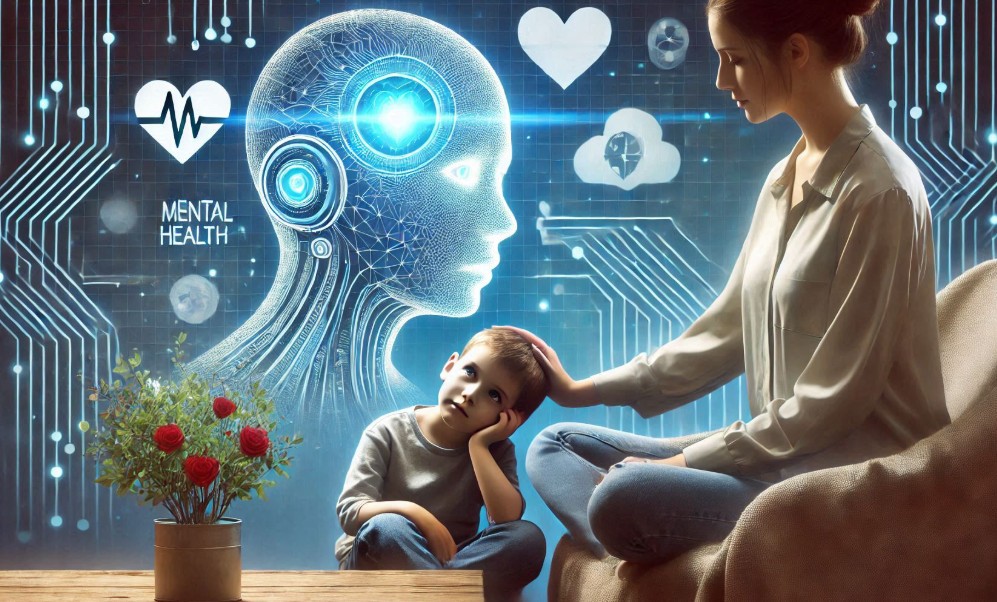In recent years, there has been a significant advancement in the field of Artificial Intelligence (AI) and Augmented Reality (AR). These technologies have become increasingly popular and have the potential to enhance virtual experiences in various fields such as gaming, education, healthcare, and...
Artificial Intelligence Learns to Determine Suicide Risk

The development of advanced systems that can assess emotional well-being is revolutionizing the way we understand and address mental health challenges. These innovations are opening up new possibilities for preventing tragic outcomes by offering earlier insights into individuals' mental states. By leveraging sophisticated algorithms, we can now gain a clearer picture of a person's psychological condition, providing essential support in critical moments.
Recent breakthroughs in this field have led to the creation of models capable of identifying patterns in human behavior that are often linked to severe emotional distress. These systems analyze vast amounts of data to detect subtle changes that might otherwise go unnoticed. The ability to anticipate potential threats to an individual's mental health can be a game-changer, offering a proactive approach to intervention.
As technology continues to evolve, its role in monitoring and safeguarding mental health is becoming increasingly significant. The promise of these advancements lies not only in their ability to save lives but also in their capacity to offer tailored support, improving the overall quality of mental health care worldwide.
How AI is Revolutionizing Mental Health
Technological advancements are reshaping the landscape of mental health care, providing tools to better understand and address emotional well-being. By utilizing cutting-edge models, new methods are emerging that help detect early signs of distress and offer insights that were previously difficult to obtain. These systems have the potential to change how mental health professionals approach diagnosis, intervention, and ongoing support for individuals facing psychological challenges.
Enhancing Early Detection of Mental Health Issues
Modern systems are capable of processing large volumes of data from various sources, such as social media activity, medical records, and personal behavior patterns. By analyzing this information, they can identify potential indicators of emotional struggles long before a crisis occurs. This proactive approach allows for timely intervention, helping prevent severe outcomes and offering individuals the care they need when it's most effective.
Personalized Approaches to Mental Health Care
Another significant advantage is the ability to tailor treatments based on individual needs. The technology can assess various factors that influence emotional states, including lifestyle, genetic predisposition, and past experiences. This enables healthcare providers to create personalized plans that are more likely to be effective in addressing specific concerns, fostering a deeper understanding of what works best for each person.

AI Models for Identifying Suicide Risk
The development of advanced computational models has brought a significant shift in how we approach the detection of critical emotional states. These models utilize vast amounts of data to identify patterns that might signal impending crises. By examining various factors such as behavior, social interactions, and mental health history, these systems can provide valuable insights, helping healthcare professionals intervene before a situation worsens.
How Data Analysis Improves Early Detection
Through the analysis of large datasets, these systems can identify early warning signs that are often too subtle for human detection. By reviewing patterns in speech, social media activity, and even physiological indicators, these models are able to flag potential concerns. This enables medical professionals to take a more proactive role, offering support before a more serious outcome occurs.
Integrating Multiple Data Sources for Better Outcomes
One of the key strengths of these models is their ability to integrate multiple sources of data. This may include information from electronic health records, behavioral data, and even lifestyle factors. By combining these elements, the system provides a more comprehensive understanding of an individual's well-being, leading to more accurate assessments and tailored interventions.
The Future of AI in Suicide Prevention
The evolving role of advanced technology in mental health care promises to bring groundbreaking improvements in preventing critical emotional crises. As these systems become more sophisticated, their ability to identify distress signals will only increase, making early intervention more effective. The future holds immense potential for reducing the impact of mental health struggles through proactive, data-driven strategies.
Innovative Approaches for Support and Intervention
Looking ahead, technology will play a pivotal role in shaping how support is provided to individuals facing emotional challenges. Some of the advancements include:
- Real-time monitoring of behavioral and emotional patterns to detect changes as they occur.
- Personalized care plans based on continuous analysis of an individual's well-being, offering more tailored solutions.
- Improved communication tools, enabling seamless connections between individuals in need and healthcare professionals.
Ethical and Social Considerations
While the benefits of these advancements are clear, their integration into mental health practices must be approached with caution. Future developments will need to balance innovation with ethics, ensuring that privacy is respected and that these technologies are used responsibly. Some important aspects to consider are:
- Ensuring transparency in how data is collected, analyzed, and used to make decisions.
- Addressing concerns about accessibility and ensuring that all individuals, regardless of background, can benefit from these advancements.
- Developing clear regulations to prevent misuse or overreliance on technology in sensitive health matters.



